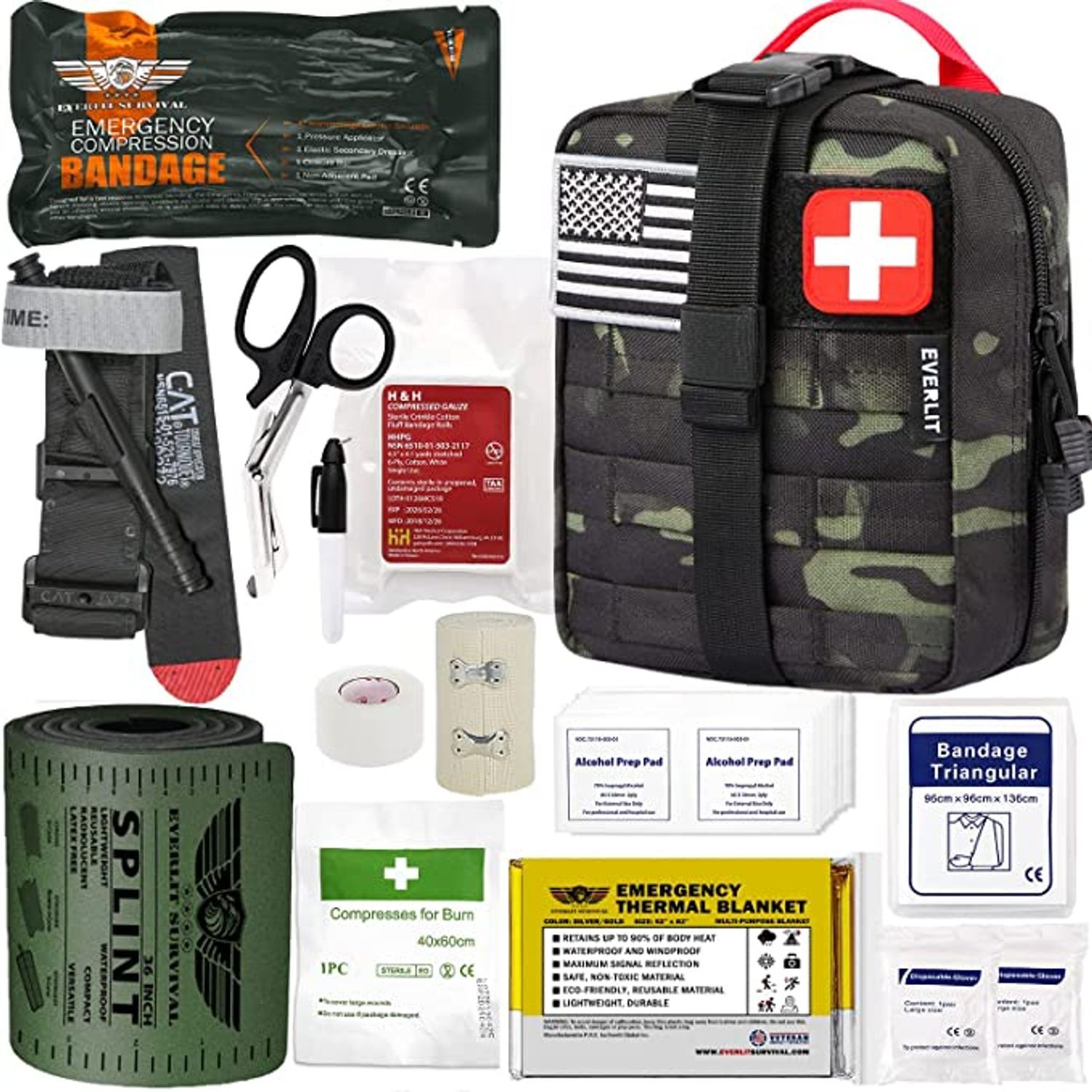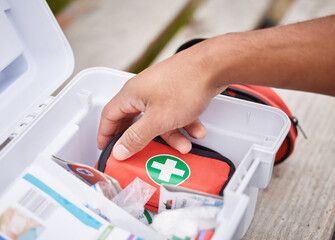
GET A QUOTE
Does an IFAK Expire?
When it comes to first aid preparedness, few items are as essential as an Individual First Aid Kit (IFAK). These kits are designed to provide immediate medical assistance in emergencies, whether you're on the battlefield, in a remote area, or just at home. However, a common question that arises among users is: Does an IFAK expire? This article delves into the expiration of IFAKs, what components are most vulnerable to expiration, and how to ensure your first aid kit remains effective when you need it most.
What is an IFAK?
Before discussing expiration dates, it's important to understand what an IFAK is and why it plays a crucial role in first aid. An IFAK, or Individual First Aid Kit, is a compact, portable kit designed to address life-threatening injuries in emergency situations. Typically, an IFAK contains items such as tourniquets, bandages, hemostatic agents, chest seals, and other critical tools.
Key Components of an IFAK
An IFAK is not just any first aid kit; it's a specialized collection of medical supplies tailored to handle severe injuries. The primary components of an IFAK include:
- Tourniquets: Used to control severe bleeding.
- Hemostatic Agents: Substances that promote rapid blood clotting.
- Chest Seals: To treat penetrating chest wounds.
- Compressed Gauze: For wound packing.
- Nasal Airway: Helps maintain airway patency.
These components are vital for providing immediate care in critical situations, but they also have a shelf life that must be considered.
Do First Aid Kits Expire?
The short answer is yes—first aid kits, including IFAKs, do expire. The concept of expiration is not always as straightforward as it seems. While the physical container and some of the tools may not have a strict expiration date, many of the medical supplies inside do. Understanding the expiration of each item is crucial to ensuring the effectiveness of your IFAK when an emergency strikes.
Understanding Expiration Dates
Expiration dates on medical supplies indicate the time frame during which the manufacturer guarantees the full efficacy of the product. After this date, the product may not function as intended, which can be life-threatening in an emergency. For example:
- Hemostatic Agents: These substances may lose their clotting efficiency over time.
- Medications: Any medication included in your IFAK, such as pain relievers or antiseptics, may lose potency or become harmful after expiration.
- Chest Seals: The adhesive on chest seals may degrade, compromising their ability to create an airtight seal.
It's essential to regularly check the expiration dates of these items and replace them as needed to maintain the reliability of your IFAK.
How Long Do IFAKs Last?
The longevity of an IFAK depends on several factors, including the type of materials used, storage conditions, and how often the kit is exposed to harsh environments. While some components, like bandages and tourniquets, may have a longer shelf life, others, like medications and hemostatic agents, may need to be replaced more frequently.
Factors Affecting IFAK Expiration
Several factors can influence how long your IFAK remains effective:
- Storage Conditions: Exposure to extreme temperatures, moisture, and sunlight can accelerate the degradation of medical supplies.
- Frequency of Use: If you've used your IFAK and replaced certain items, it's crucial to check the expiration dates on the new supplies.
- Quality of Materials: Higher quality materials tend to have a longer shelf life, but they still need regular inspection.
How to Extend the Life of Your IFAK
While you can't stop your IFAK from eventually expiring, there are steps you can take to extend its shelf life and ensure it's always ready for use.
Proper Storage
One of the most effective ways to extend the life of your IFAK is through proper storage. Keep your first aid kit in a cool, dry place, away from direct sunlight. Avoid storing it in areas with high humidity or temperature fluctuations, as these conditions can cause materials to degrade faster.
Regular Inspections
Make it a habit to inspect your IFAK regularly. Check the expiration dates of all items and replace any that are nearing or have passed their expiration date. Additionally, ensure that the packaging of each item is intact, as damaged packaging can compromise the sterility and effectiveness of the supplies.
Rotation of Supplies
If you keep multiple IFAKs or other first aid kits, practice rotating your supplies. Use the oldest items first, and replace them with new stock to ensure that nothing goes to waste. This is particularly important for items like medications and hemostatic agents that have a shorter shelf life.
What to Do With Expired IFAK Supplies
So, what should you do when you discover that some items in your IFAK have expired? While it might be tempting to keep expired supplies "just in case," it's not advisable. Expired items may not work as intended and could even be dangerous in certain situations.
Safe Disposal of Expired Items
Dispose of expired medical supplies according to local regulations. Many communities offer take-back programs for medications and other medical items. For non-medical items like bandages or packaging, ensure they are disposed of in a manner that prevents contamination or harm to others.
Replenishing Your IFAK
Once you've removed expired items from your IFAK, it's time to replenish the kit. Purchase new supplies from reputable sources to ensure quality and reliability. Keep a log of the items in your IFAK and their expiration dates, so you can easily track when it's time for a refresh.
Why Keeping an Up-to-Date IFAK is Crucial
An IFAK is more than just a collection of medical supplies; it's a lifeline in emergency situations. Keeping your IFAK up to date is not just about following guidelines—it's about ensuring that you, or someone else, can receive effective treatment when it matters most.
The Importance of Readiness
Emergencies can happen at any time, and being prepared with a fully stocked, non-expired IFAK can make the difference between life and death. Regular maintenance and inspection of your IFAK ensure that all components are ready to perform when needed.
Conclusion
In conclusion, the expiration of an IFAK is a vital consideration for anyone serious about first aid readiness. Regularly inspecting your kit, replacing expired components, and ensuring proper storage are essential steps to maintaining an effective first aid kit. Remember, when an emergency strikes, the reliability of your IFAK can make all the difference.
At RISEN Medical, we understand the importance of having a dependable, up-to-date first aid kit. Our IFAKs are meticulously designed with high-quality materials to ensure long-lasting performance. We also offer a wide range of first aid supplies to keep your kit fully stocked and ready for any situation. By choosing RISEN Medical, you’re not just investing in a product; you’re investing in peace of mind.
Don’t take chances with outdated medical supplies. Explore our selection of IFAKs and first aid kits today, and ensure that you’re always prepared when it matters most.


